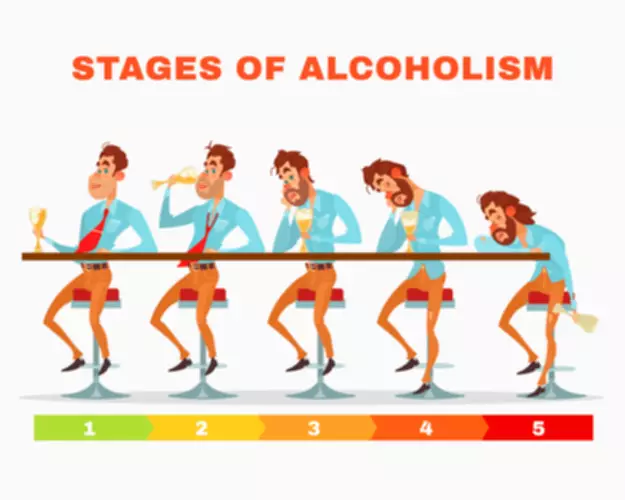
According to current statistics, approximately 17% of men and 8% of women will be dependent on alcohol why is alcoholism considered a chronic disease within their lifetime. More than 15 million people currently struggle with alcoholism in the United States, but less than 8% actually receive treatment. Alcohol abuse is the third highest cause of death in the U.S., resulting in over 88,000 deaths per year – on average, those who died had their lifespan shortened by thirty years. Alcoholism is considered a progressive disease because it worsens over time if left untreated. The persistent and chronic nature of alcohol dependence can lead to severe alcohol use disorder, which can have adverse effects on an individual’s physical and mental health over time.
- By recognizing the importance of these relationships, we can better equip those struggling with alcoholism to navigate the path to sobriety.
- The American Hospital Association, the American Public Health Association, the National Association of Social Workers, and the American College of Physicians classify alcoholism as a disease.
- You are more at risk for AUD if you begin drinking in adolescence or before the legal drinking age.
Genetic and Environmental Factors
Without addressing the underlying issues, the individual may find themselves trapped in the relentless progression of alcoholism. Recognizing these signs and understanding the risk factors can lead to earlier support and potentially prevent the progression to more severe stages of alcoholism. Not only does AUD affect the health of the person with the disease, but it also impacts the lives of those around them. Medications, behavioral therapies, and social support groups are among the strategies to combat this disorder. When healthcare providers screen for AUD, they look at drinking behavior patterns within the last year to determine a diagnosis. They use 11 criteria established by the DSM-5 to assess alcohol use severity.

Past Trauma and/or Environmental Factors
Make that bold move in your life to finally deal with the alcohol that is poisoning you from the inside out. Our caring, compassionate, and highly experienced staff are here for you, every step of the way. The programs at The Bridges of San Diego change lives – give us a call right now and see just how beautiful your life can be.
Is Alcoholism Considered a Progressive Disease?
- The journey to reshape societal views on alcoholism is a critical step towards a more compassionate and effective approach to addressing this condition.
- Early intervention through counseling, medication, and support groups can help.
- Studies at the National Institutes of Health claim alcoholism is 50% genetic.
- Binge drinking is considered consuming enough alcohol to put you over the legal limit of 0.08 percent, and your inhibitions become compromised (binge drinking also often leads to alcohol-induced blackouts).
- These include genetic predisposition, mental health disorders, stress, and social environment.
- Long-term effects of alcoholism include liver disease, heart problems, and brain damage.
Tolerance occurs when the body adapts to the presence of alcohol, requiring greater amounts to achieve the same effect. This escalation can lead to increased consumption and a higher risk of harm. Under the direction of licensed therapists or counselors, behavioral therapies involve psychological strategies to modify drinking behaviors. The therapy goals are to develop the skills needed to manage your habits, build social support, set and work toward realistic goals, and deal with or avoid things that trigger drinking. Treatment offering the greatest potential for successful https://ecosoberhouse.com/ recovery includes behavioral therapies, medication, a 12-step support system, and family support. Studies show that those who continue therapy after completing their treatment program and regularly attend 12-step support meetings, have the highest success rate for long-term recovery.
What Happens if I Don’t Manage My Addiction?
Often, AUD affects more than just the individual and is often referred to as a “family illness.” Utilizing a resource like group therapy offers the chance to heal past transgressions while pushing forward to recovery. Soberlink’s alcohol monitoring system helps with both self and group accountability. As previously mentioned, the system allows scheduled tests and can share results with people close to you, like your friends, family, recovery coaches, etc. Group accountability and support from loved ones are just as important for those in recovery as self-accountability. When surrounded by people who love and support you, your drive and desire to stay in recovery are typically much more inherent. Therapy also can help you work through not just the addiction but the root of the addiction and how to live with past trauma without alcohol dependence.

For those with financial constraints, options such Drug rehabilitation as hardship memberships or one-time donations can ensure access to necessary resources. In the tapestry of recovery, each story is a unique stitch that strengthens the whole. The collective wisdom gleaned from these experiences can light the way for others.

0 Comments
Leave A Comment